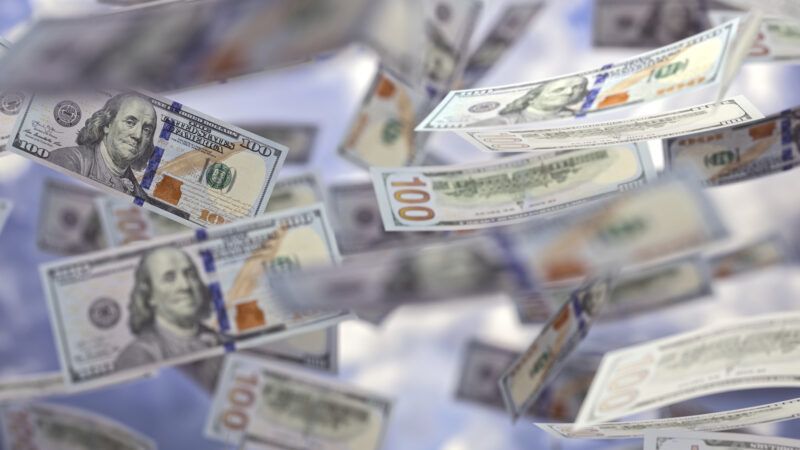Employed, Middle Class Americans Don't Need More 'Free' Stimulus Money
But they're almost certainly going to get some.

The passage of a new stimulus bill hit a surprise roadblock on Tuesday night, but that's unlikely to prevent the federal government from throwing more money at Americans who haven't lost their incomes—and neither will the upcoming change in presidential administrations.
President-elect Joe Biden said Tuesday that he will push for another round of stimulus checks as part of a planned COVID-19 relief bill he'll urge Congress to pass after he takes office next month. Sounding a pessimistic note that's markedly different from how the Trump administration has approached the pandemic, Biden said the "darkest days" of the crisis are still to come. He favors extending emergency federal unemployment payments and said he would negotiate with Congress for more stimulus checks.
Hours later, President Donald Trump threatened to veto a $900 billion COVID-19 relief bill passed earlier this week because the package does not include large enough direct payments. The bill would send $600 to all Americans who earned less than $75,000 last year, with payments phasing out around $87,000. Trump wants payments of $2,000 per person—a demand that would add roughly $350 billion to the cost of the overall package.
And keep in mind that those $600 stimulus checks were only included in the current stimulus bill after the cross-aisle alliance of Sens. Josh Hawley (R–Mo.) and Bernie Sanders (I–Vt.) threatened to block the measure's passage until they were added.
"I think you're seeing that there's a clear understanding that these issues go beyond any ideology," Biden said Tuesday, referring to the popularity of direct payments.
Indeed, it's understandable that most people like the idea of receiving "free" money from the federal government, and that such direct payments are more popular than bailouts, guaranteed loans, and the other forms of hard-to-get, arbitrarily and unevenly disbursed financial assistance that Congress, the Trump administration, and the Federal Reserve have employed during the economic crisis caused by COVID-19.
But broad popularity is not necessarily a good way to determine what is effective or smart policy. As Brian Riedl, a former Republican congressional staffer and senior fellow at the Manhattan Institute, a conservative think tank, has pointed out, a middle-class family of four could end up receiving more than $11,000 in stimulus funds this year even without losing any income.
And that total only includes what has already been distributed through the Coronavirus Aid, Relief, and Economic Security (CARES) Act passed in March and what Trump is proposing now—it does not include any stimulus checks a Biden administration may try to pass next year. That sum is also wholly separate, Reidl notes, from unemployment and welfare programs intended to help people who have lost income due to the pandemic.
"The rebates are just a gratuitous handout unrelated to need," says Riedl. "Just put it all on the nation's credit card."
A credit card that's already got $27 trillion on it.
Making budgets and deciding how to spend money is supposed to be about setting priorities. Congress has sucked at doing that for a long time, and there's no reason to expect the government to get better at it in the middle of a crisis.
Still, there is also no reason to believe that direct payments to Americans who haven't lost jobs (or been forced to close their businesses due to government edict) should be a priority right now. It doesn't make any of the wasteful spending vanish, and it isn't offsetting other welfare spending—which is crucial if any universal basic income-adjacent proposal is to be taken seriously by libertarians. Most importantly, it doesn't prioritize the people and businesses who may need government aid right now.
Trump, Biden, Hawley, and Sanders are pandering to populists with promises of "free" cash in the hopes of distracting Americans from the fiscal mess they and others have made—a mess that predates the pandemic and one that we'll have to deal with long after COVID-19 is gone.
